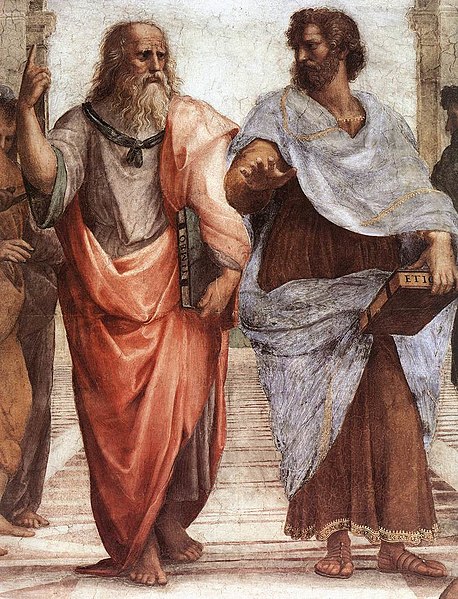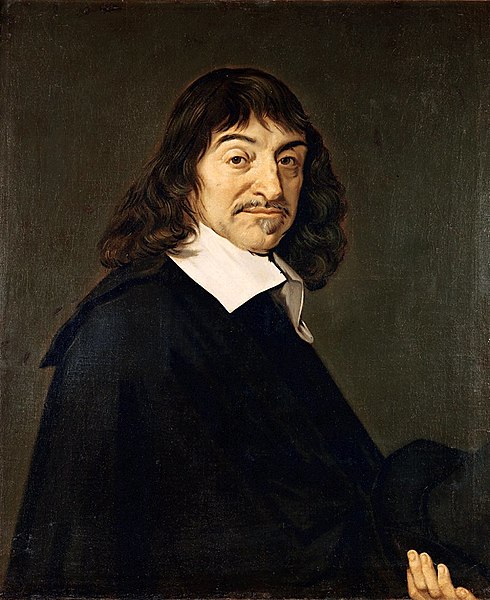Natural law is a system of law based on a close observation of natural order and human nature, from which values, thought by the proponents of this concept to be intrinsic to human nature, can be deduced and applied independently of positive law. According to the theory of law called jusnaturalism, all people have inherent rights, conferred not by act of legislation but by "God, nature, or reason." Natural law theory can also refer to "theories of ethics, theories of politics, theories of civil law, and theories of religious morality."
Plato (left) and Aristotle (right), a detail of The School of Athens, a fresco by Raphael
Marcus Tullius Cicero
Thomas Hobbes
Reason is the capacity of applying logic consciously by drawing conclusions from new or existing information, with the aim of seeking the truth. It is associated with such characteristically human activities as philosophy, religion, science, language, mathematics, and art, and is normally considered to be a distinguishing ability possessed by humans. Reason is sometimes referred to as rationality.
Francisco de Goya, The Sleep of Reason Produces Monsters (El sueño de la razón produce monstruos), c. 1797
René Descartes
Dan Sperber believes that reasoning in groups is more effective and promotes their evolutionary fitness.






